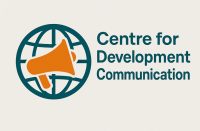In my recent study, published in the National Open University of Nigeria International Journal of Peace Studies and Conflict Resolution, I examined how participatory communication played a pivotal role in resolving the protracted farmers–herders conflict in Buruku, a rural community in Benue State, North Central Nigeria.
Using Focused Group Discussions (FGDs) and Key Informant Interviews (KIIs), I engaged a diverse mix of rural farmers, police personnel, and community-based organisations to explore how dialogue and inclusion can restore peace where mistrust, suspicion, and violence had torn communities apart.
The Buruku conflict—rooted in resource competition and deepened by ethnic and religious tensions—had long undermined peaceful coexistence.
But something changed.
Community elders revealed that although Buruku traditionally valued inclusive dialogue, the capacity to activate this indigenous process had been weakened over time due to recurring crises. However, the reintroduction of participatory communication rekindled this tradition, empowering stakeholders to co-create solutions.
Residents, elders, and local institutions testified to its effectiveness. One police officer shared that as participatory communication took root, the number of conflict-related cases reported to the station dropped significantly—in some months, none at all.
Three officers cautioned against relying on force for conflict resolution, arguing that coercive methods often escalate tensions. They emphasized that participatory communication—if inclusive, sincere, and free from bias—is far more sustainable.
This research reaffirms a powerful truth:
Homegrown, community-led dialogue—anchored in participatory communication—can rebuild trust, transform conflict, and foster lasting peace.
As Nigeria and other countries continue to search for viable peacebuilding solutions, there is a growing need for governments, NGOs, and conflict mediators to shift from top-down interventions to people-centered communication approaches that prioritize dialogue, empathy, and inclusion.
Let’s start listening to communities. The answers are within.
Share this if you believe communication should heal, not harm.
Audu Liberty Oseni
Director, Centre for Development Communication (CDC)
